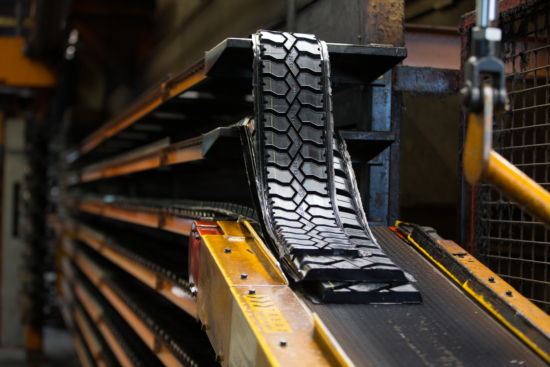BTMA and NTDA support retreading in position statement
 (Photo: Bridgestone)
(Photo: Bridgestone)
The National Tyre Distributors Association (NTDA) and British Tyre Manufacturers Association (BTMA) have published a position statement expressing their support for retreading. Introducing the statement, the associations reflected on one of the points made at the 2023 NTDA Tyre Industry Conference, that “the industry suffers from a legacy of out-of-date information handed down from one generation of fleet operators and distributors to the next”, adding: “Past prejudices against retreading are no longer founded.”
The statement is formed around five points: safety, cost, environment, UK retread sector and planned actions. It is reproduced in full here:
Safety
A modern retread offers performance equal to or often better than many new tyres. Retreads must pass the same endurance test as new tyres. Research into roadside tyre debris undertaken by National Highways has confirmed that retreads are no more likely to fail in service than new tyres. Regulation requires all retreaders to annually undergo a demanding 3rd party Conformity of Production audit. This ensures that every retread meets the required standard.
Cost
Tyre policy influences 50% of fleet operating costs. In many cases, a policy including retreaded tyres can be more competitive than using low-cost new tyres, considering total cost of ownership including longevity, fuel efficiency and reliability.
Environment
A tyre policy incorporating retreading will typically consume 75% fewer tyres than a policy based on low-cost tyres. And release up to 50% less tread wear material. There are useful CO2 savings too as modern retreads use the same or an equivalent low rolling resistance tread compound as new premium tyres. Generally, 85% of the material from the original tyre can be reused in a retread, saving natural resources and CO2 emissions.
UK retread sector
Despite challenging market conditions, many operators in the UK retread sector have continued to invest in new manufacturing plant delivering improved quality, productivity and capability. The total investment over the last five years exceeds £15 million. UK-made retreads contribute typically 40% more value added to the economy than imported low-cost tyres. UK retread manufacture also supports hundreds of jobs, often in deprived areas.
Planned actions
Retreading offers least total operating cost and best environmental performance. Many large fleets are already harvesting these benefits. NTDA and BTMA will continue to push for government support for smaller operators to achieve corresponding cost savings and improved environmental performance through optimised tyre management policies, including increased use of retreading.
Recognising the need for improved knowledge within the industry, NTDA and BTMA are fully committed to working closely to pursue the dissemination of best practice advice and up-to-date information regarding tyres and tyre stewardship.




Comments